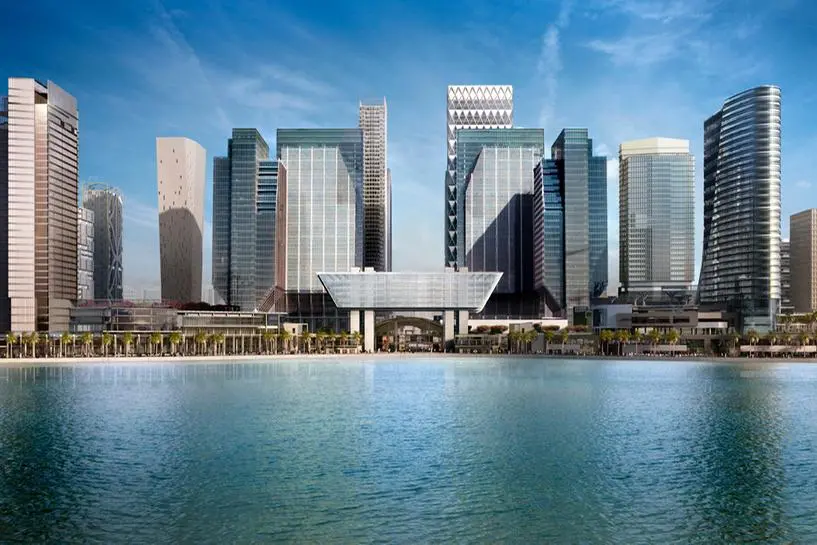PHOTO
India-based Federal Bank is seeking to have presence at Abu Dhabi Global Market (ADGM), the international financial centre, to expand operations in the UAE including the neo banking space.
Federal Bank, listed on the Bombay Stock Exchange and the fourth largest private sector bank in India in terms of capital base, has 1,336 branches spread across India with 12,592 employees and assets of $25 billion as of December 31, 2022. It has a capital adequacy ratio of 17.23%, one of the highest in India.
“We will be seeking to get a banking ‘capability’ in the UAE to offer more services to our customers and expand operations if the local regulations permit us to do that,” said Shyam Srinivasan, managing director & CEO of Federal Bank, who met Sheikh Nahyan bin Mubarak Al Nahyan, UAE’s Minister of Tolerance and Coexistence.
Federal Bank, which has representative offices in Dubai and Abu Dhabi, is exploring to base in ADGM to tap opportunity for market development and digital banking as the financial centre offers a conducive regulatory and commercial environment to host digital banks and innovative solutions.
“We are India’s finest digital bank and have tied up with many new-gen banks offering complete device-led banking. We add more than 2.5 million new customers every year with our fintech partners,” said Shyam, who was in Dubai to attend an event to celebrate 15 years of presence in the UAE.
“Over the past 15 years, the bank has achieved numerous miles and has played a significant role in the development and growth of the UAE,” he said.
A banking licence will enable the bank to offer normal banking services to its clients in the UAE.
Bank of Baroda is the only Indian bank licensed by the UAE Central Bank, and several major Indian banks, including India’s largest bank State Bank of India (SBI), have presence in the UAE through their Rep Offices, which are not permitted to provide normal banking services such as lending and accepting deposits.
However, the Dubai International Financial Centre (DIFC) allows foreign banks to provided services like deposits, credit, financial advisory, advice on investment deals and syndication, all denominated in US dollar.
Indian banks at DIFC are SBI, Union Bank of India, IDBI Bank, Canara Bank and Punjab National Bank.
Focus on Green
Federal Bank is also increasing investments in green projects in the region following an increase in its green portfolio when International Finance Corporation (IFC), member of the World Bank Group, and two investment funds managed by IFC Asset Management Company, IFC Financial Institutions Growth Fund, and IFC Emerging Asia Fund made an equity investment for 4.99% stake worth $126 million in Federal Bank in recognition of its commitment to ESG standards.
Recently, the bank was recognised by IFC for its leadership in climate financing in the South Asia region when it disbursed climate loans amounting $332.9 million during financial year 2022.
“When many banks are reducing branches, we are adding branches. In FY 2023 we added 75 branches, and in FY 2024 and 2025 we will add 100 each,” Shyam said.
The bank’s share in remittances from non-resident Indians (NRIs) in UAE is increasing. Quoting a World Bank report, Shyam said India has received $100 billion in foreign remittances in 2022, accounting for 3% of the country’s GDP.
“Of this, almost 60% of remittances to India come from the Middle East. Kerala accounts for a large share of remittances and Federal Bank enjoys 20-21% share of the remittances coming to India. This year we received 30% more than the previous year,” Shyam said and observed that deposits have not grown though remittances have increased.
The CEO also talked about utilisation of remittances and credit offtake in Kerala. The credit-deposit (CD) ratio is close to 50-55% against the national average of 84%, as Kerala is a deposit-heavy market and credit deployment is always lower in the absence of any large infrastructure projects.
(Reporting by Bhaskar Raj, editing by Seban Scaria)




















